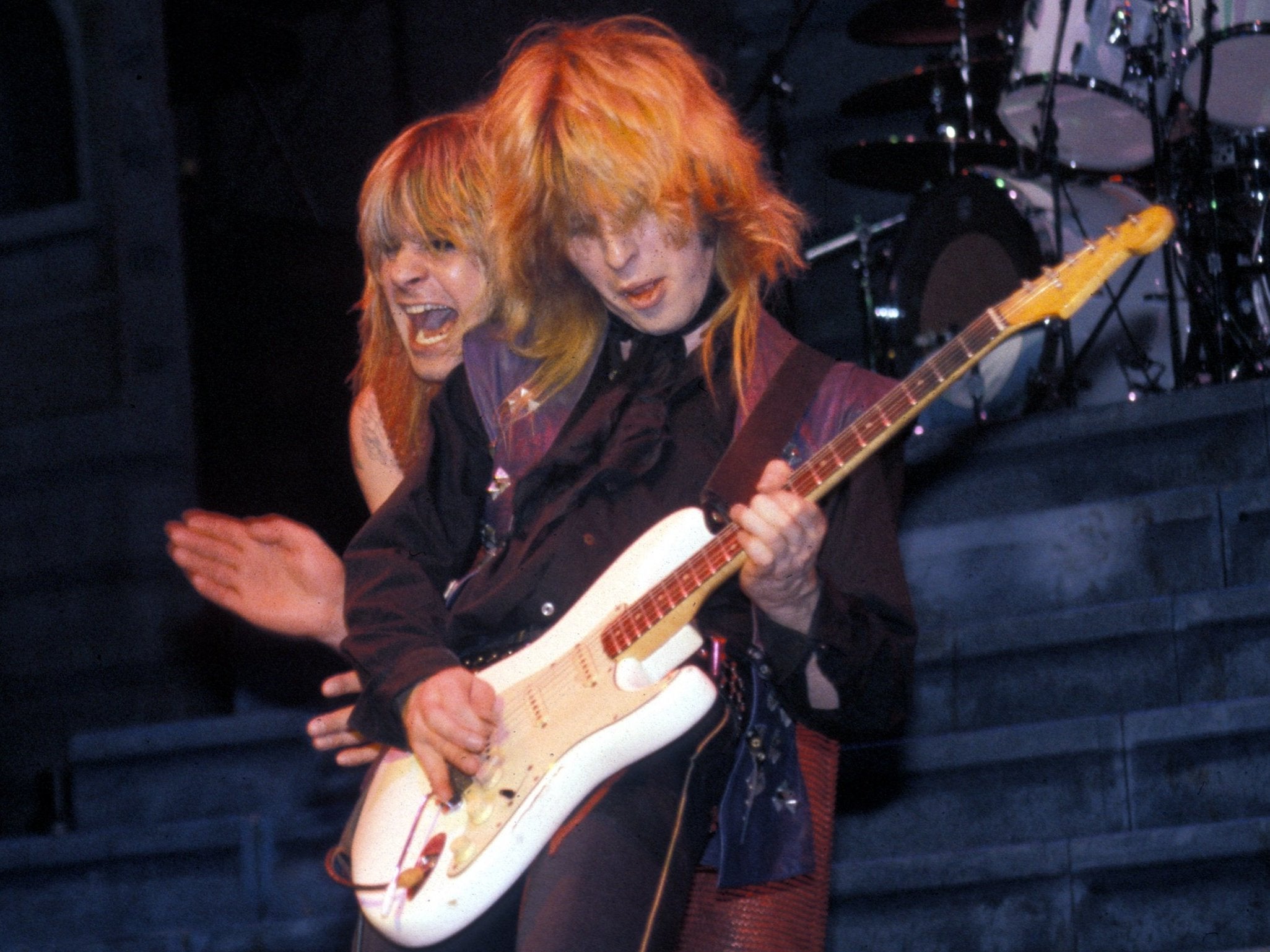Bernie Torme, Irish guitarist and sideman to rock heavyweights
Subtlety and dexterity drew many admirers as well as work with the likes of Ozzy Osbourne and Gillan

Bernie Torme, who has died in London aged 66, may well be regarded as the last of the great British and Irish guitar heroes who once ruled rock music. Torme never achieved the fame that garlanded the likes of Jeff Beck and Rory Gallagher – two guitarists whose playing influenced him – but his blues-flavoured solos and friendly, unpretentious manner made him the go-to player for many a heavy-rock star. Ozzy Osbourne, Ian Gillan and Dee Snyder all employed Torme.
Bernard Joseph Torme was born in Dublin in 1952 and came of age as British and Irish rock bands dominated the charts. He formed his first band while at school, played Dublin’s pubs and, in 1974, relocated to London. Here he joined a hard-rock band called Scrapyard who achieved little.
This led to the formation of the Bernie Torme Band in 1976. Finding himself playing alongside the new wave of rock bands gathered under the umbrella of punk, he roughened up his band’s sound and won support gigs with The Boomtown Rats and Generation X. In October 1977 Torme was asked to contribute two tracks to Live At The Vortex, an album aiming at cashing in on the punk phenomenon. The album got bad reviews but sold well and won Torme a deal with Jet Records. Jet paid Torme and his band mates £40 a week each and issued two 45s, neither of which achieved any success.
If Torme’s band attracted little attention, many noted his dexterity on guitar and, in 1979, Ian Gillan, former singer of Deep Purple, asked Torme to join his band, Gillan. Torme found himself transported from pubs to stadiums as Gillan toured the world. The band’s 1979 album Mr Universe reached No 11 in the UK album charts and sold 2 million copies worldwide. Torme also played on Gillan’s Glory Road (1980), Future Shock (1981) and Double Trouble (1981), all of which sold strongly, before leaving the band after a dispute over money.
Back in London he worked in the studio with prog-rock band Atomic Rooster and then took a call that would put him in the spotlight for the only time in his life – on 19 March 1982 Ozzy Osbourne’s guitarist Randy Rhoads was killed in a plane crash.
Torme was dispatched to Los Angeles to complete the tour. With the rock media watching, Torme stepped into Rhoads’ shoes. It proved an uncomfortable fit: Osbourne wanted an an aggressively heavy metal player while Torme favoured subtlety. The guitarist stayed a fortnight with Osbourne then returned to London, his profile considerably raised.
Once again leading his own band, Torme went on to release 10 solo albums over the next 36 years while playing on numerous other projects with noted British and American heavy-rock musicians. His warm, open nature made him a favourite both with musicians and fans, as did his great love of performing. “The high spots are always playing,” he said in 2004, “the solos when it all falls right. The moments when something happens with a band, perfectly unrehearsed, never to be repeated. Shared subconsciousness. Those are my high points, and sometimes that includes the whole audience too. Pure total magic.”
Torme’s popularity as a live performer guaranteed him a loyal audience across Europe and Japan. When not touring he ran his own recording studio in rural Kent. Changes in the music industry forced Torme to crowdfund his recent albums Flowers & Dirt (2014), Blackheart (2015), Dublin Cowboy (2017) and Shadowland (2018). Torme announced that his November and December 2018 UK tour would be his last, dubbing it “The Final Fling”. Hospitalised with virulent double pneumonia in February, this turned out to be the case.
Bernard ‘Bernie’ Torme, guitarist, born 18 March 1952, died 17 March 2019
Join our commenting forum
Join thought-provoking conversations, follow other Independent readers and see their replies
Comments
Bookmark popover
Removed from bookmarks